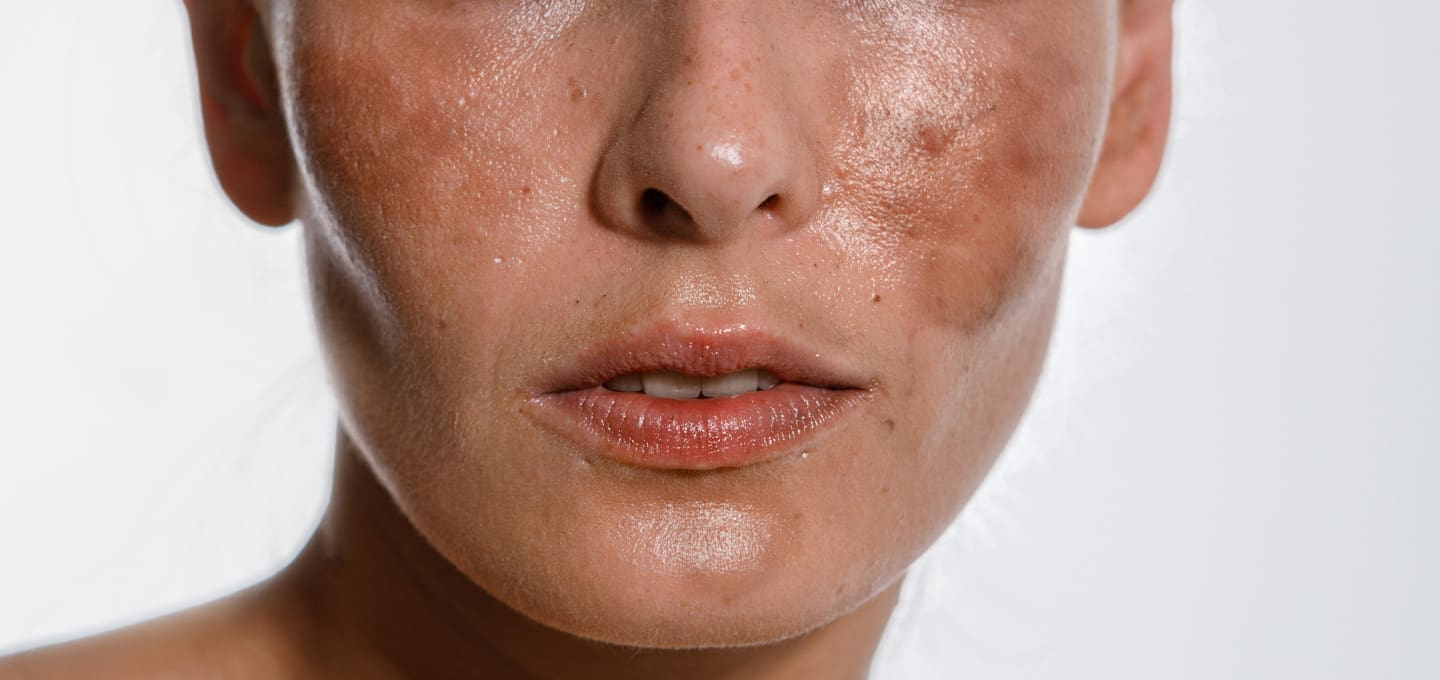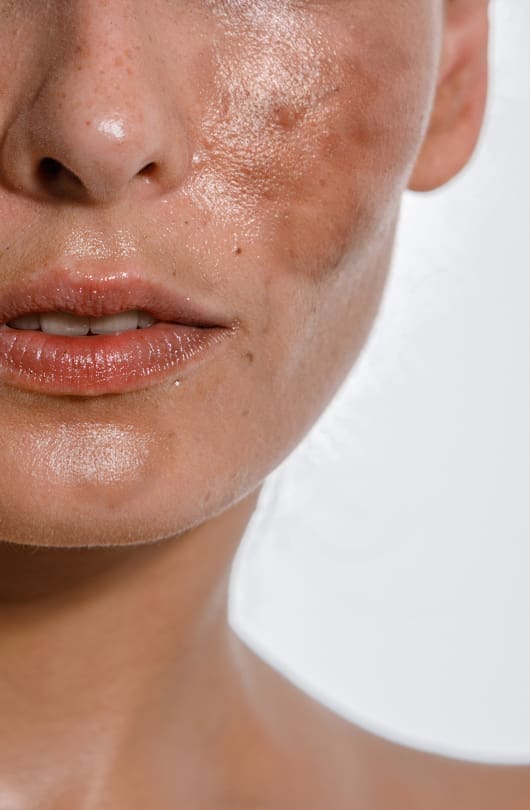Skin discolouration can manifest in various ways, including patches of darkening (hyperpigmentation) or lightening (hypopigmentation), as well as redness or bluish hues. These changes in skin tone can be the result of a wide range of factors, including both temporary and chronic conditions.
Hyperpigmentation occurs when there is an excess production of melanin, the pigment responsible for skin colour. This can be triggered by factors such as sun exposure, hormonal changes (as seen in conditions like melasma or chloasma), inflammation (like in post-inflammatory hyperpigmentation after acne), or as a response to injury or scarring.
Hypopigmentation is characterised by a decrease in melanin production or distribution, resulting in lighter patches of skin. Conditions like vitiligo, which is an autoimmune disorder, and certain fungal infections can lead to hypopigmentation.
Red or bluish discoloration of the skin can be indicative of vascular issues. Conditions like rosacea, spider veins, or bruising can cause variations in skin colour due to blood vessel dilation or leakage.
Treatment for skin discoloration depends on the underlying cause and type of pigmentation disorder. Broad-spectrum sunscreen is often recommended to prevent further hyperpigmentation and protect the skin from UV damage. Topical treatments containing ingredients like retinoids, hydroquinone, or alpha hydroxy acids can help regulate melanin production. In cases of hypopigmentation, treatments may focus on stimulating melanocyte activity, such as through the use of topical corticosteroids, calcineurin inhibitors, or phototherapy. The successful management of skin discoloration can be challenging. During your dermatology consultation a plan will be constructed to give you the best chance of restoring a more even skin tone.
Any significant changes in skin colour should be evaluated by a consultant dermatologist for accurate diagnosis and appropriate treatment recommendations. Early intervention and targeted therapies can often lead to successful management of skin discoloration.







